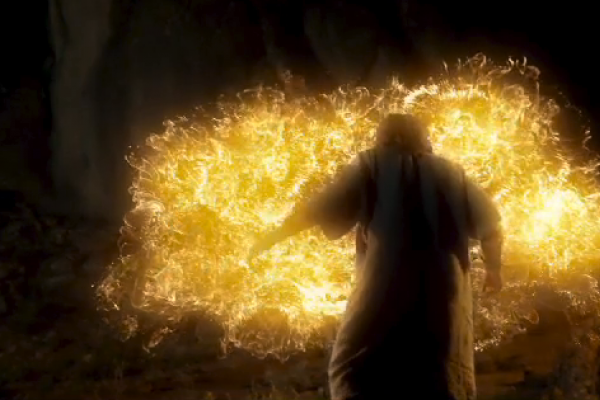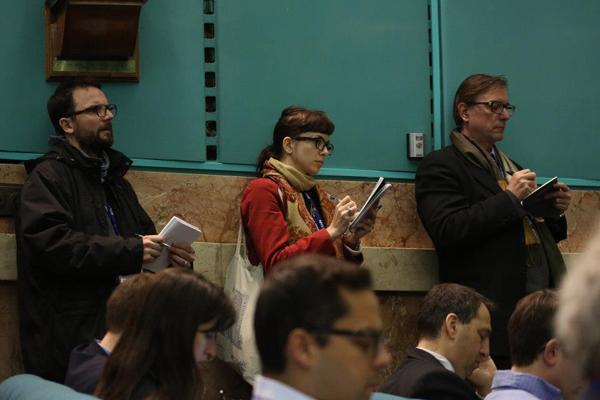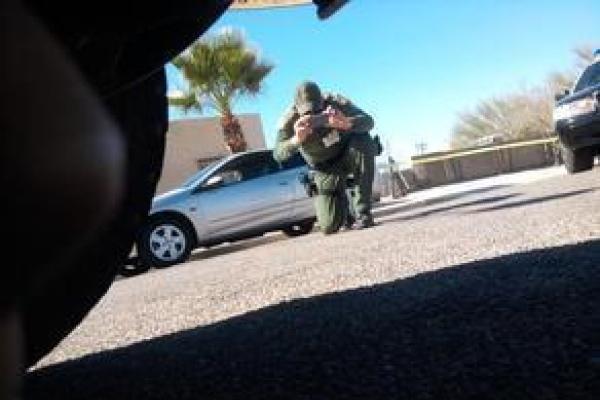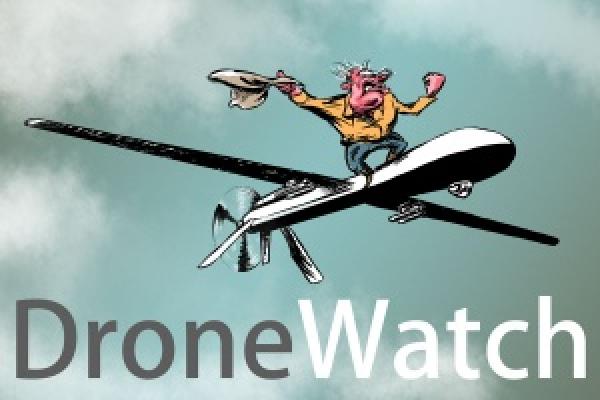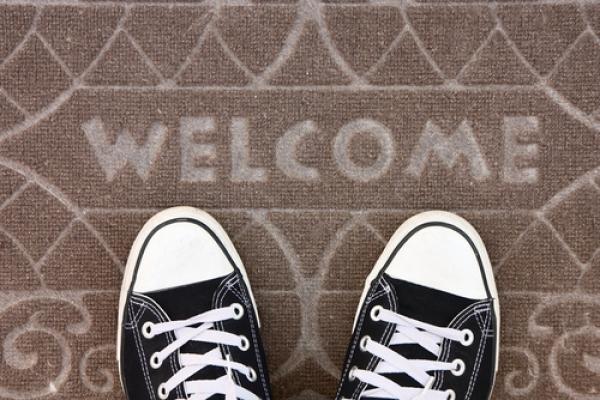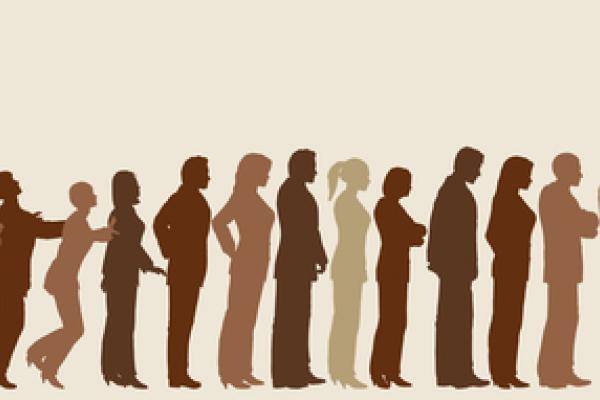The Bible. Just the phrase sends messages, signals, and feelings to our hearts and minds, and around the world. It’s the best-selling book in human history, and one that the majority of humanity (including me), believes to have been inspired by God, with myriad interpretations of what that means.
I grew up on Bible stories, some of the best stories in human and divine history. We learned them as kids, were amazed at the images and lessons, and they were ingrained into our thinking and acting. So I watched with great delight as my sons, Luke and Jack, saw the first episode of “The Bible,” a History Channel special series that began this past Sunday and runs the five weeks through Easter. Film and television personalities Mark Burnett and Roma Downey are behind this, with a legion of others. They expect it to eventually be seen by 1 billion people.
The first Sunday show was a very dramatic depiction of the creation story, Noah’s Ark, Abraham’s call to come out to a new land, the birth of Ishmael and Isaac, the almost sacrifice of Isaac, Hebrew slavery in Egypt, Moses' call at the burning bush, and the Exodus through the Red Sea — all in two hours! I loved watching my 9-year-old Jack watch the stories with such excitement. “I know this story!” he would say and tell us what was about to happen. “I don’t know this one,” he would then comment, and we would discuss it. We had a conversation about the scary sacrifice of Isaac before bedtime, trying to figure that one out. I told him I couldn’t have been as obedient as Abraham was.
CLARKSVILLE, Tenn. — We did a focus group here as part of strategic planning at Trinity Episcopal Church.
Question: if you stood on the edge of your church’s property and looked outward, rather than inward as we usually do, what would you see?
A public school kindergarten teacher spoke about kids who come to school hungry and wearing shabby clothing. She started to discuss the family chaos her kids describe during sharing time, but she began to weep and couldn’t speak at all.
Tensions among the Roman Catholic cardinals meeting here to choose a new pope appeared to escalate on Wednesday as the American prelates in Rome canceled their daily press briefing under pressure from colleagues who are frustrated over news coverage of their secret talks.
The cardinals also announced that they still had not been able to agree on a start date for the conclave, in which 115 electors will cast their ballots for a successor to Pope Benedict XVI.
The effort to control the flow of information from the daily pre-conclave “General Congregation” meetings marked a sharp reversal from the unprecedented openness that had characterized this first papal conclave of the digital age.
On a beautiful Sunday afternoon just a few weeks ago, a friend of mine courageously crawled under a Border Patrol truck. And he wasn't changing the oil. Raúl Alcaraz Ochoa was riding his bike to work when he came upon a scene that is all too common in southern Arizona, where racial profiling by the Tucson Police Department is permitted through the notorious legislation SB1070 and Border Patrol roam our streets. Multiple police cars and Border Patrol trucks were surrounding a vehicle apparently pulled over for traffic violation. When Raúl arrived, he saw five children crying for their father and a pregnant woman sitting terrified in the vehicle. Handcuffed and being transferred to Border Patrol custody was a Latino man named René.
Raúl had to think and act quickly, and he crawled under the Border Patrol truck. He began sending texts that spread quickly throughout a community protection network designed to alert community members and advocates about raids, abuse, and racial profiling by immigration and law enforcement. Media and supporters responded within minutes, just as Raúl was pepper sprayed, Tazed, and pulled out from under the vehicle. Both men spent the night in custody, and public demands were widespread for their release. While Raúl was released the next day, top officials of Border Patrol and the Department of Homeland Security ignored pleas for René to rejoin his family, and he was promptly deported to Mexico.
The Senate Intelligence Committee yesterday confirmed White House adviser John Brennan as CIA director on a 12-3 vote. The Democratic Senate leadership is attempting a quick vote, but ran into a problem as a filibuster began. The Associated Press reports:
“Sen. Rand Paul, R-Ky., stalled the chamber as he took to the Senate floor to complain over what he said was President Barack Obama's failure to adequately answer questions about the legality of conducting lethal drone strikes against targets inside the United States. The Obama administration has said it does not intend to conduct such strikes.
"'No American should be killed by a drone on American soil without first being charged with a crime, without first being found guilty of a crime by a court,' Paul said. 'How can you kill someone without going to a judge, or a jury?'"
Sen. Paul began speaking about two hours ago, you can watch HERE.
A common sentiment that’s expressed by both the left and the right on the issue of immigration reform is that immigrants need to prove their faithful adherence to the law and contribution to society before they’re put on some path to citizenship. It's redemption by works. It’s a reasonable means to verify their willingness to contribute to society. But a disconcerting irony dawned on me amid all this mutual give-and-take language we hear about immigrants; that is, many citizens themselves do not heed the same exhortation to contribute to their country today.
This is encouraged by the fact that citizenship today is identified entirely by a piece of paper, not by a way of life — by ink, not by deed. Although one’s citizenship technically includes a whole list of rights and duties, the fulfillment of these rights and duties is not a part of the identification process. This is understandable, as it’s very difficult to tell whether someone is trying to contribute to the state or merely trying to get what they can out of their legal privileges. I'm not out to start a Civil Reformation or something. But these thoughts have reminded me that the standard the Bible sets for Christian citizenship in heaven is something else entirely.
New Calvinists today have hammered home the doctrine of justification by faith through grace, not by works or legalistic moralism. Kingdom citizenship is claimed by faith in Christ. Got it.
Yet, Scripture is emphatic that Kingdom citizenship is not identified by faith alone, but also by works.
Our distaste for people who cut in line remains unchanged as we grow up. Whether someone gets to the front of the lunch line or the airport security check before us in an unfair way, our annoyance is raised. People who steal our parking spots during the Christmas season are the recipients of our worst thoughts. We might — just might — yell a string of expletives and death threats at anyone who has wronged us on the road or in a parking lot.
It’s not just about being orderly and following the rules. Instead, we rue the flouting of justice and fairness. I have been waiting patiently in line; what gives you the right to deem yourself better than me?
Yet if we’re honest, we will quickly realize that such outrageous reactions to outrageous behavior are no better than the line cutter or parking space thief. Moreover, our sense of injustice is quite attuned to moments of personal grievance even as we neglect how our actions may harm others. If anything, these moments of rage reveal much more about us than those we think have aggrieved us.
